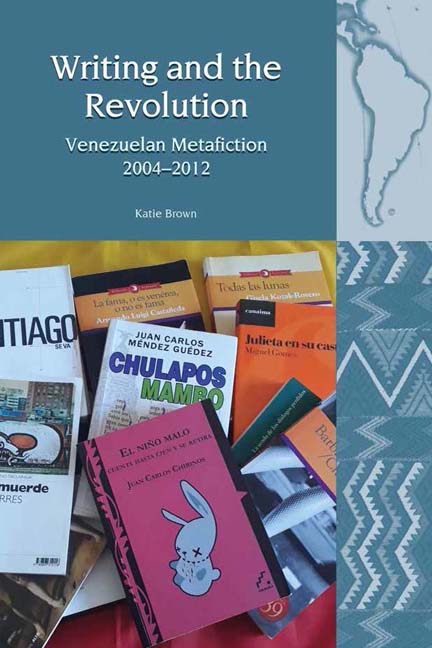4 - Making Literary Connections
Summary
As well as (auto)fictional writers, there is a notable presence of real-life writers as characters in contemporary Venezuelan fiction. In the context of Bolivarian cultural policy, which posited that enthusiasm was the only necessary criterion for writing, offered limited access to international literary developments and disregarded Venezuelan literary tradition, the novels discussed in this chapter put emphasis on individual literary talent and assert the value of literary tradition, placing their own work as a continuation of this tradition. As discussed in the previous chapter, Venezuela under the Bolivarian Revolution became a ‘closed literary space’ in Pascale Casanova's (2004, 106) terms. On the one hand, this meant difficult access to developments in the wider literary world, as, in addition to geographical distance from the major publishing centres – Paris, London, New York, Barcelona – protectionist policies limited the books which were imported to Venezuela, promoting instead the idea that autochthonous writing was all that was necessary (Valery, 2009a; Lionetti, 2012). On the other hand, a lack of engagement in world literary space stemming from Venezuelan authors not needing to look beyond the state for publishing opportunities in the past meant that Venezuelan literary tradition remained largely unknown beyond national borders. Moreover, even within this closed literary space, Bolivarian cultural policy did little to encourage the reading of works by earlier generations of Venezuelan writers, unless they could be used to propagate revolutionary ideology. This chapter explores how the interrelated issues of literary isolation and disregard for Venezuelan literary tradition have been explored and challenged in contemporary fiction, suggesting that the writers analysed here assert a continuity of tradition. This chapter begins with analysis of how the consequences of literary isolation are satirised in Chulapos Mamboby Juan Carlos Méndez Guédez (2011) through the use of both intertextual references and cameos from famous Latin American writers to tie the novel into a wider literary field. The second half of the chapter then considers two cases of real Venezuelan writers as protagonists in contemporary novels – Eugenio Montejo in El niño malo cuenta hasta cien y se retira by Juan Carlos Chirinos (2010) and Salvador Prasel in Círculo croata by Slavko Zupcic (2012).
- Type
- Chapter
- Information
- Writing and the RevolutionVenezuelan Metafiction 2004-2012, pp. 105 - 126Publisher: Liverpool University PressPrint publication year: 2019

